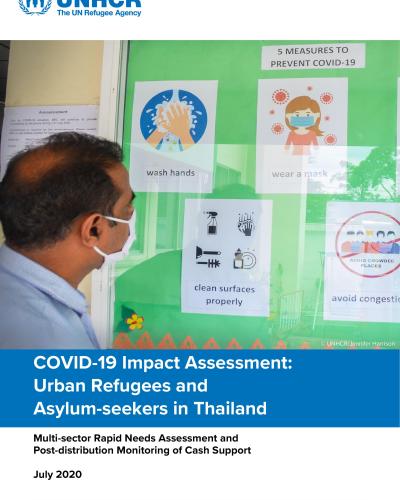COVID-19 Impact Assessment: Urban Refugees and Asylum-seekers in Thailand

The COVID-19 outbreak started in Thailand in mid January 2020. The pandemic has had a significant impact on all sectors of Thai society, including refugees and asylum-seekers. In the urban context, UNHCR has been working with a range of partners, including Asylum Access Thailand (AAT), the Catholic Office for Emergency Relief and Refugees (COERR), HOST international, the International Organization for Migration (IOM), Tzu Chi Foundation and UNICEF to ensure that the protection needs of urban refugees and asylum-seekers are met and thereby support the Royal Thai Government (RTG) in its response to the COVID-19 pandemic. Having observed increased levels of vulnerability relating to restrictions on movement, loss of livelihood opportunities and access to healthcare, these organisations, led by UNHCR, carried out a multi-sectoral Rapid Needs Assessment (RNA) to strengthen understanding of the situation of this oftentimes hidden population. This focused on a range of areas, including: COVID-19 knowledge, experience, behaviour and norms, health, education, employment and access to basic necessities. The findings provide a stronger evidence base from which to design protection and programme interventions.
The report provides an overview of findings from the RNA and PDM exercise and proposes a series of recommendations to strengthen efforts by UNHCR, other UN agencies, non-governmental organizations (NGOs) and the RTG to better support refugees and asylum-seekers during this unprecedented and particularly challenging time.








